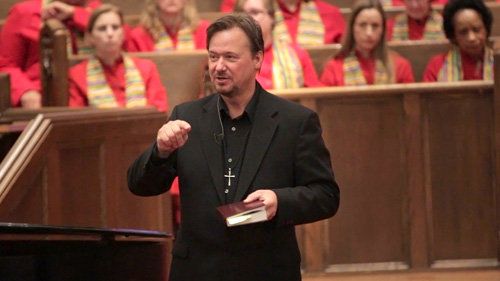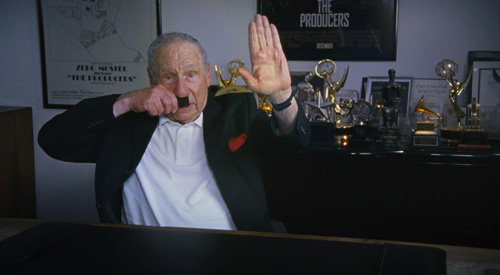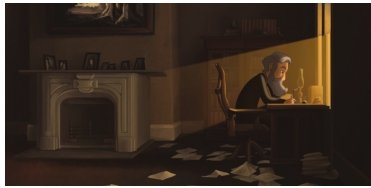Nov. 3-10 Call or see web for complete list of show times, admission prices and locations (517) 980-5802, elff.com
The East Lansing Film Festival kicks off its 19th year Thursday, offering a week-long slate of features and short films across three locations. This year’s films range from thrillers like Flint native Jason Wade Hammonds’ “Ceresia,” in which an experimental drug triggers a patient’s psychotic episode, to thought-provoking documentaries like “Obit,” which introduces us to the men and women behind The New York Times’ obituaries section, and “Walk With Me,” a portrait of Detroit native Damon Jerome Keith, an African American judge who oversaw several important civil rights, housing and education decisions.
City Pulse contributors Allan I . Ross and Eric Bayley take a look at some of this year’s most interesting offerings.
“An Act of Love”
86 minutes

You might think that since same-sex marriage has been legalized in the U.S., it would be smooth sailing for a gay couple looking to tie the knot in their chosen house of worship. But much as the Civil Rights Act didn’t come close to ending societal racism, American gays still face discrimination on a church-by-church basis.
The documentary feature “An Act of Love” focuses on one of the more dynamic figures in the marriage equality movement prior to last year’s Supreme Court decision. In 2013, the Rev. Frank Schaefer was confronted by the United Methodist Church for officiating his son’s same-sex marriage five years earlier. In its codified guidelines, the Book of Discipline, the United Methodist Church does not allow its ministers to perform gay weddings. At a special tribunal, Schaefer was given a choice: promise to never marry another gay couple or resign. His decision lies at the heart of this astonishingly powerful film.
Interviews include gay Methodist members who feel marginalized by the church’s stance, church leaders — including one bishop who marched with Martin Luther King Jr. in the 1960s — as well as the institution’s elders, some of whom feel hamstrung by their own principles. The latter insist they’re not homophobic, they’re just trying to uphold the laws that define their religion. Those interviews provides good perspective on the complicated issue, and director Scott Sheppard wisely avoids demonizing the opposition.
Although Schaefer’s journey is far from over — as is the push for universal acceptance of same-sex marriage — “An Act of Love” provides a hopeful outlook for those who seek to embody Methodist founder John Wesley’s words: “Though we may not think alike, may we not love alike?”
— ALLAN I. ROSS
“The Last Laugh”
88 minutes

What are the limits of comedy? Is it productive or insensitive to joke about a tragedy? Does laughing about something necessarily mean you’re making light of it? These are questions asked by Ferne Pearlstein’s “The Last Laugh,” a documentary that explores humor related to horrific events like the Holocaust and 9/11. The film presents a series of interviews, mostly with comedians, with supplementary footage from other media. Notable names like Mel Brooks, Sarah Silverman and Gilbert Gottfried discuss the complicated issue, providing varying perspectives on what is acceptable when it comes to making comedy.
Brooks, for example, a perpetual button pusher and decency smasher, says that he’ll gladly make jokes about Hitler and Nazis but the Holocaust itself is off limits. Pearlstein makes an intelligent decision in balancing the comedians’ takes with the story of Renee Firestone, an elderly holocaust survivor. Firestone is the primary subject and the film’s anchor, a figure Pearlstein frequently returns to for context and moral centering.
The Holocaust discussion is fascinating and sure to spark debate amongst viewers, but the film is most interesting when it moves beyond the Holocaust and starts looking at comedy’s role in the culture at large. Many of the comedians interviewed make the case for comedy as the great taboo buster, a liberator from unnecessary or oppressive censorship or cultural norms. Unfortunately, it doesn’t follow through on one of its most compelling issues.
Instead, the film makes the mistake of dogmatic over-identification with its main subject, Firestone. The misstep is understandable; Firestone is one of the few authorities we have left on the horrors of the Holocaust. But too often, the film seems to agree too enthusiastically with Firestone’s (sometimes contradictory) opinions on the issues at hand. It feels like the film tries to create an easy answer to a question that doesn’t have one.
— ERIC BAYLEY
“Missing Moon Rocks”
22 minutes
(Part of LMFC Short Documentaries)
A conventional but fascinating documentary, “Missing Moon Rocks” sets out to do one thing but stumbles onto another. Apollo 17, the most recent manned Moon landing, returned to Earth in 1972 with over 800 pounds of moon rocks and other lunar material. Hundreds of these rocks were given to countries around the world as a gesture of good will. Since then, about 160 of these rocks have been stolen, destroyed or lost. The film introduces various individuals and groups who have made it their mission to track down the missing rocks.
Seemingly made as a pseudo-public service announcement to challenge the public to help find the missing rocks, Troy Hale’s documentary also serves as a wistful reflection of society’s dwindling interest in exploring the cosmos. Many of the rocks were lost due to negligence or outright disinterest. I’m reminded of a quote from the film “Interstellar”: “We used to look up at the sky and wonder at our place in the stars. Now we just look down and worry about our place in the dirt.” “Missing Moon Rocks” feels like the documentary embodiment of that quote.
— ERIC BAYLEY
“From Flint: Voices of a Poisoned City”
23 minutes

This locally produced documentary short effectively captures the anger, frustration and fear of the citizens of Flint, who are still dealing with the fallout from the city’s lead-contaminated water crisis. More important, it puts faces to those affected, including some who are still living through it.
Impassioned mothers break down in tears describing the rashes across their children’s bodies, and families are shown breaking back into their own homes after being locked out, allegedly for safety reasons. The footage is like something from the Third World, and the idea that it’s happening just miles from East Lansing is downright bone-chilling — as is the seeming apathy of the system that allowed this tragedy to happen.
What “From Flint” doesn’t do is provide a meaningful narrative, including a timeline, that would put this crisis into perspective. Too much is left to the viewer’s pre-existing knowledge, and no context is given for the rallies, hearings and appearances by then-Democratic presidential primary candidates Hillary Clinton and Bernie Sanders. Overall, this feels like snippets of a longer, better piece about one of the worst failings of civic leadership in American history.
— ALLAN I. ROSS
“Interlude”
16 minutes
(Part of LMFC Short Program I)
Filled with sci-fi clichés, pretentious dialogue and dreams that don’t feel very dreamlike, “Interlude” is a lackluster “Inception” knock-off that doesn’t quite have a handle on its heady themes. This is somehow fitting, as this could also describe the protagonist, David O’Moses (Ron Rigby). Attempting to conquer his inner demons and discover the cause of his constant guilt, David experiments with lucid dreaming to delve into his subconscious. Through his dreams we meet several characters, including his mother and Franklyn Judas, an all-knowing professor of David’s own imagination.
The filmmakers’ idea of creating a dream world seems to be applying a hazy filter to superficially cryptic images and bathing them in otherworldly colors and moody lighting (credit to cinematographer Jonathan D’Ambrosio for making it look lovely anyway). But the biggest problem it that the rest of the film is too literal-minded, so worried about making everything understandable that the film ultimately fails to feel like a dream. Dreams are inherently illogical and powerful. “Interlude” had an opportunity to be so, but it insists on decrypting itself for the audience.
— ERIC BAYLEY
“Muir”
4 minutes
(Part of LMFC Short Program I)

A century before the rise of social media, naturalist John Muir wrote a treatise on disconnecting from the daily grind and communing with nature. “Muir,” a cute animated short, uses snippets of Muir’s seminal 1901 book, “Our National Parks,” which argues that spending quality time outdoors is a basic human need. And as the National Park Service commemorates its 100th anniversary this year, Muir’s message is as relevant as ever.
“Tired, nerve-shaken, over-civilized people are beginning to find out that going to the mountains is going home,” the narrator of “Muir” intones as lush, seemingly hand-painted depictions of national parks splash across the screen. “Wilderness is a necessity.”
Gorgeous scenes include a sunrise spreading across Half Dome in Yosemite National Park, the mist settling among the ridges of the Great Smoky Mountains and a fly-by through Delicate Arch in Utah’s Arches National Park. While “Muir” won’t replicate a hike through a national forest, it may rouse — or reawaken — a yen for the great outdoors.
— ALLAN I. ROSS
Support City Pulse - Donate Today!
Comments
No comments on this item Please log in to comment by clicking here